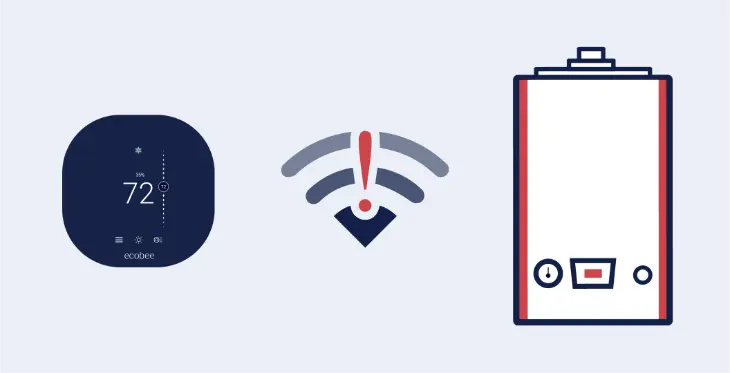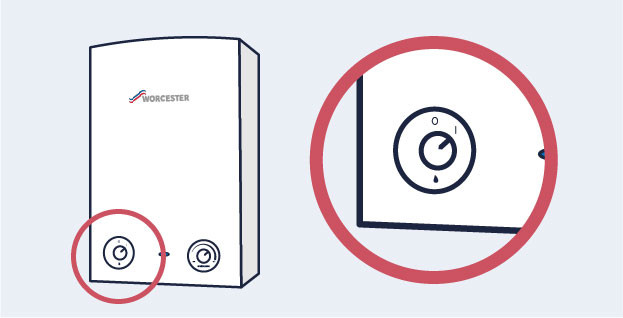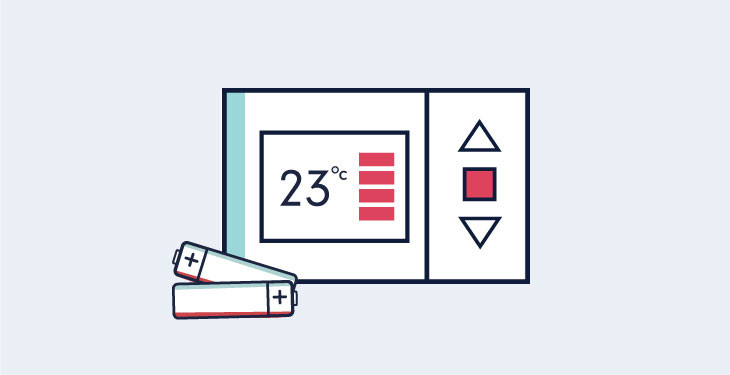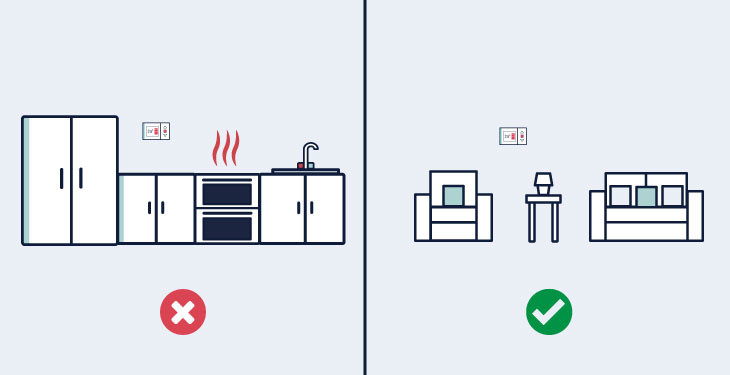

Written by Stephen Day
Gas Safe Engineer
Updated: 14th October, 2025
When your boiler isn’t responding to its thermostat, or vice versa, it can be tricky to identify the problem.
Get a new boiler quote, save up to £550 per year (0% APR available).
In this guide, we’re going to take a look at why your boiler and thermostat aren’t communicating and how you can get it fixed.
Get a quote in 60 seconds, fitted as fast as next day!
0% APR finance available.
Usually, if you find that you cannot control your boiler from the thermostat, it is either one of two components that isn’t working.
To work out what the problem is and how to fix it, you’ll need to identify which one is experiencing the problems.
To begin with, you should clear some of the basics which could be causing your heating problems.
Whilst this might seem like a ridiculous and somewhat patronising suggestion, you would be surprised by how many customers pay a hefty call out fee for an engineer to come to their home simply to tell them their boiler was turned off the whole time.
Make sure your boiler is turned on at the appliance itself and at the mains.

It’s still definitely worth a check- power cuts can often cause your boiler to switch off and not automatically come back on, or you may find that another member of the household has been fiddling with switches.
As with any battery operated device, if you have a wireless thermostat you’ll need to replace its batteries every now and then.
Usually, your thermostat will alert you that the batteries need changing up to a month before they run out with either a message on the digital screen or with a flashing light somewhere on the device.

When the low batteries eventually die, you’ll see a black display screen and the thermostat will stop working, meaning your heating system will go down as there is no temperature command being sent to your boiler.
In order for thermostats and boilers to work, they need to be able to communicate well with each other.
If your thermostat is located nearby the boiler, another heat source or a poorly insulated area of the home that doesn’t represent the temperature of the rest of the home, temperature readings can be inaccurate and end up causing your heating to come on when you don’t need it or not come on when you do.

If this is the case, you may need to relocate your thermostat so it can get more accurate readings. Thankfully, if your thermostat is wireless then this should be a very simple task. If your thermostat is wired in, however, you may need to arrange for it to be relocated by an electrician.
A thermostat allows you to have full control of your heating, however, if you don’t know how to work your thermostat properly, how can you expect your heating system to know what to do?
Make sure you are programming your thermostat correctly and setting the temperature above the threshold in order to turn the heating on as when the temperature you set is too low, it may not trigger the heating to come on.
If you find that you are unsure of how to use your thermostat properly, most manufacturers have instruction leaflets or manuals you can find online.
Modern smart thermostats can be much easier to work and can often be done through an app on your phone, helping you to stay more in control of your heating.
It’s also worth mentioning that smart thermostats can learn your household heating behaviour and work automatically e.g. turning on ten minutes before you usually arrive home from work as well as a range of other fantastic benefits.
Check out our list of the top smart thermostats in 2021.
If you have covered all of the basics and your boiler and thermostat still aren’t communicating with each other, it may be time to call in a Gas Safe engineer to take a look for you
If you have covered these basics and your boiler and thermostat still aren’t communicating as they should, it may mean your boiler is not working properly.

This could be due to a number of reasons. You can find some of the most common boiler problems and how to fix them in our helpful guide.
If your boiler is over fifteen years old, it may be on its last leg and struggling to respond to your thermostat.
Unfortunately, this means it is likely time to say goodbye to your old boiler.
To understand what you might pay for an upgrade, take a look at our 2025 guide to new boiler cost, covering average prices, installation options, and what affects the final total.
Fortunately, you can get a brand new boiler that will be significantly more energy efficient and help you save up to £380 a year on energy bills, making it an incredibly worthwhile investment.
Not sure which model is right for your home? Our detailed guide on what is the best combi boiler compares the top-performing options for efficiency, size and price.

Not to mention, most modern boilers are compatible with smart thermostats, unlike very old boilers.
To help you choose a reliable manufacturer, check out our list of the best boiler brands available in the UK, featuring trusted names for performance and longevity.
Get a quote in 60 seconds, fitted as fast as next day!
0% APR finance available.
Last updated: 14th October, 2025

Written by Stephen Day
Gas Safe Engineer at iHeat
Stephen Day is a Gas Safe registered and FGAS certified engineer with over 20 years of hands-on experience in the heating, cooling, and renewable energy industry, specialising in boiler installations, air conditioning, and heat pump systems.
LinkedInArticles by Stephen Day are reviewed by iHeat’s technical team to ensure accuracy and reliability.

19th February, 2026
Selecting the appropriate boiler for your London home involves understanding the different...
 Read Article
Read Article

19th February, 2026
A typical Annual Boiler Service includes a visual inspection to identify any obvious fault...
 Read Article
Read Article

19th February, 2026
Boiler servicing comprises a set of inspections and tests conducted by a qualified enginee...
 Read Article
Read Article
No obligation. Takes less than 60 seconds.